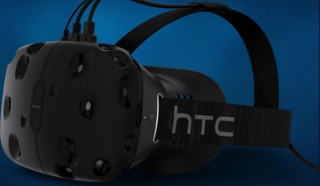Devs Talk Hopes and Fears for VR
Some say it could lead to an anti-social world, while others believe it could help people develop true empathy for others.
Fallout 4 Next Gen Update Comparison Fallout 4 Steam Deck Verified Gameplay ALIEN: Rogue Incursion - Announcement Teaser Trailer Stellar Blade - 13 Things I Wish I Knew S.T.A.L.K.E.R. 2: Heart of Chornobyl — Official "Not a Paradise" Trailer Sea of Thieves Season 12: Official Content Update Video GameSpot Says Goodbye To The Lobby The Lobbies 2017 Alternative Game Of The Year Awards These Games Do Post-Release Content Right - The Lobby What Did 2017 Mean For Video Games? What Doom Means For Shooters On Nintendo Switch - The Lobby Star Wars Battlefront 2 Is An EA Disaster - The Lobby
Please enter your date of birth to view this video
By clicking 'enter', you agree to GameSpot's
Terms of Use and Privacy Policy
Virtual reality was a major talking point at the Game Developers Conference last week, but discussion around the future-focused technology wasn't limited to that show alone.
During a PAX East panel today called "Is This Real Life? No Escape From Virtual Reality," a panel of virtual reality experts discussed some of their hopes and fears for the technology.

Devon Newsom, who works for Rock Band developer Harmonix, said he's worried that virtual reality technology like Oculus Rift or Vive could one day become so advanced that people would not be able to distinguish between the real world and the virtual world.
"My biggest fear is kind of my biggest hope," he said. "That is, that we create a version of reality that is just as believable [as our world]. If that is possible, my fear is that why would you want to be in the real world?"
If virtual reality ends up being ubiquitous, and Oculus VR's John Carmack says that's likely to happen, then the world could become full of anti-social people, Newsom said. He labeled this vision for the future as "pretty scary."
However, Newsom also said the future of virtual reality could have a positive effect on society. Through technology like Microsoft's augmented reality headset HoloLens, which doesn't fully cover your face as Oculus and others do, people might be able to actually enhance their lives and social interactions, he said.
Also speaking today on the virtual reality panel was Tipatat Chennavasin, a creative director for venture capital firm Rothenberg Ventures, which recently established its own "virtual reality accelerator." Chennavasin said he foresees virtual reality technology being used to promote and advance social awareness.
Virtual reality headsets can allow people to "see what's happening in Syria or other parts of the world," he said. "I think that will be very beneficial for everyone. Maybe we won't be so quick to judge, maybe we'll starting building not just sympathy but true empathy for others."
Josh Farkas, who worked on the team that created the Guided Meditation virtual reality experience, chimed in to say he thinks virtual reality is capable of affecting and impacting numerous industries outside of gaming. He imagined virtual reality being used for virtual tourism or as a means to allow someone with limited physical mobility but a capable mind to visit places and learn things they otherwise might not be able to.
Other developers on the panel expressed concerns regarding the potential psychological effects of virtual reality, privacy concerns over headsets knowing where you are at all times, and the possibility of virtual reality simply never taking off like some say it will.
The virtual reality race has been heating up of late. In addition to the Facebook-owned Oculus Rift, Sony has its PlayStation 4 headset Project Morpheus, while Half-Life developer Valve just recently announced Vive, a new virtual reality device made in partnership with HTC. According to GameSpot editor Peter Brown, Vive is now the virtual reality headset to beat.
What do you think about the possibilities for virtual reality? Let us know in the comments below!
Got a news tip or want to contact us directly? Email news@gamespot.com
Join the conversation